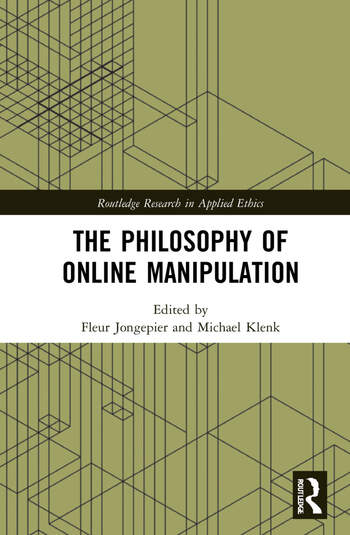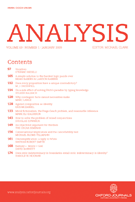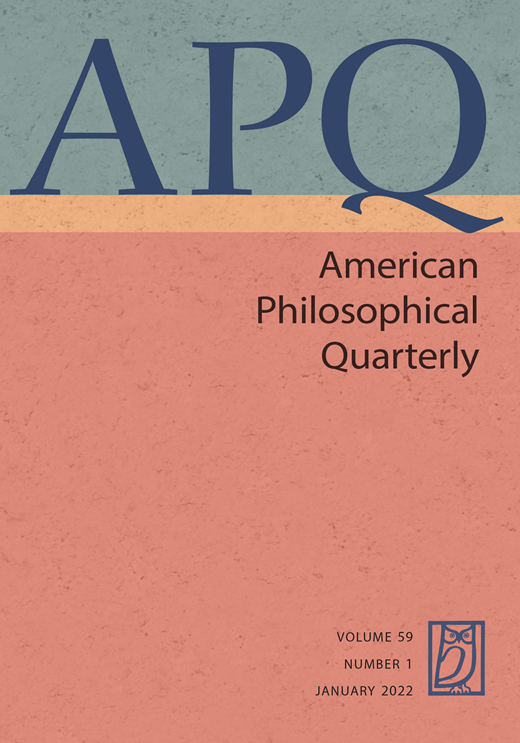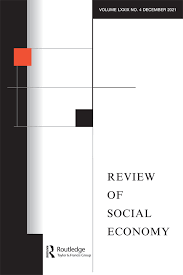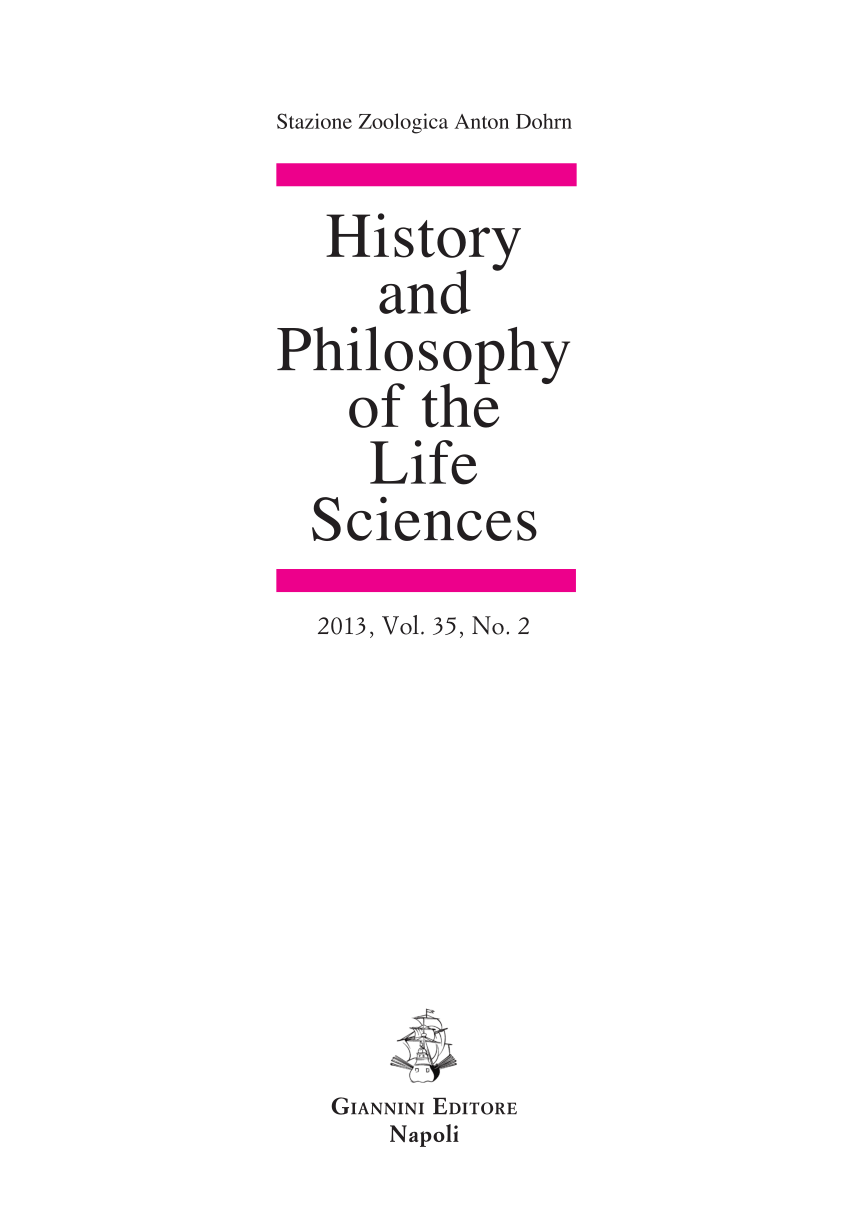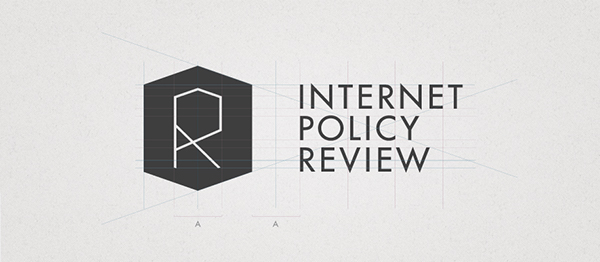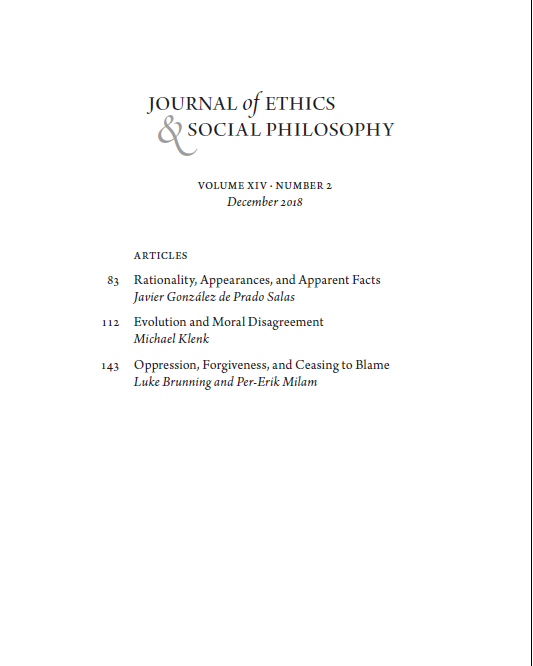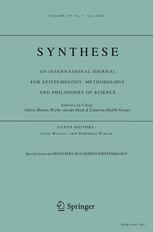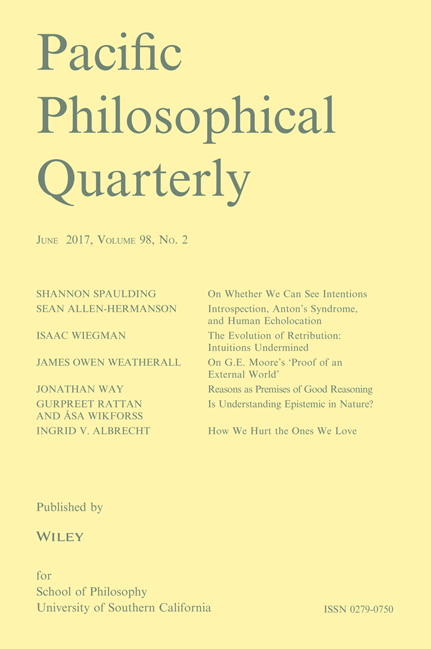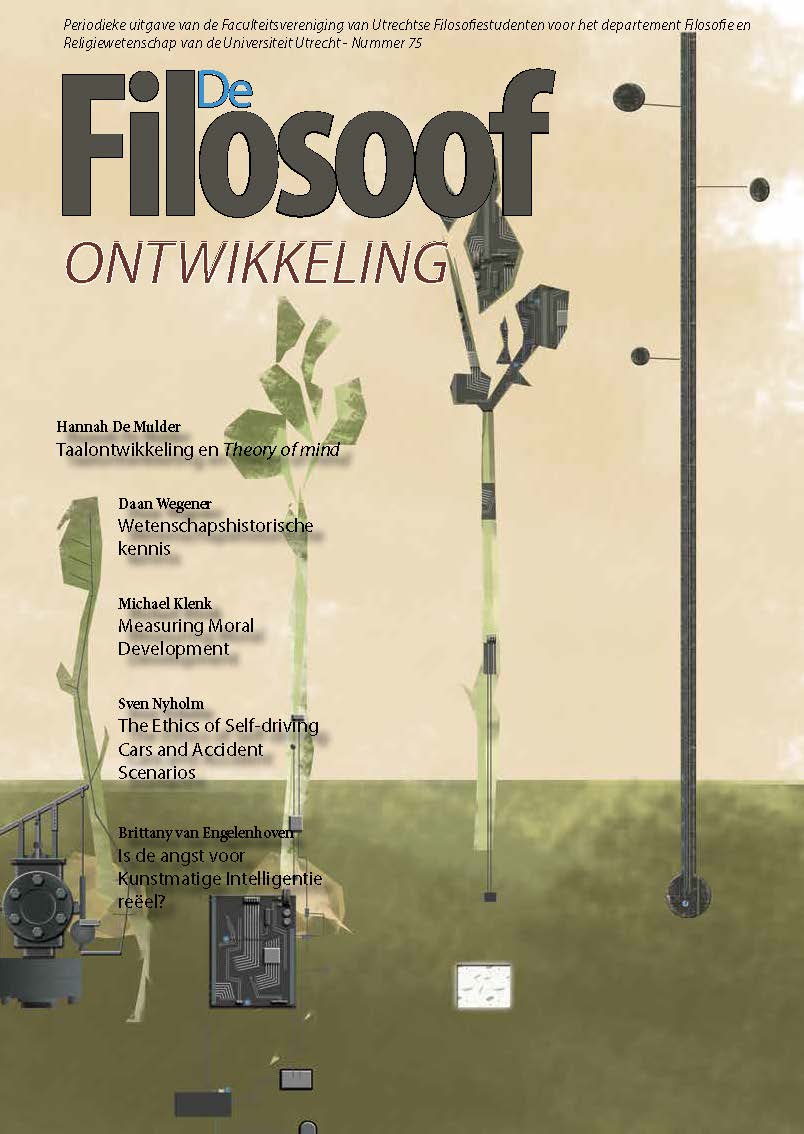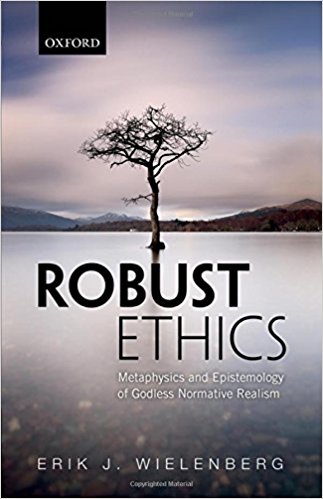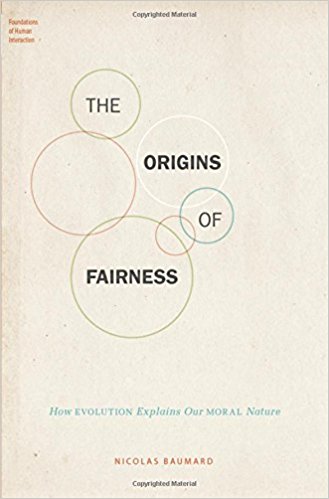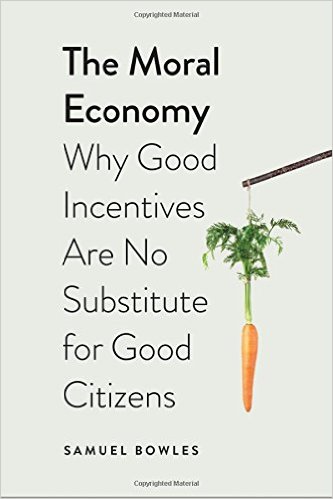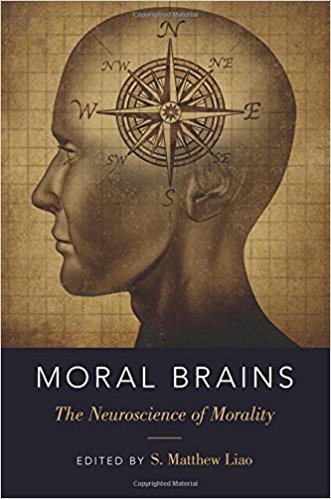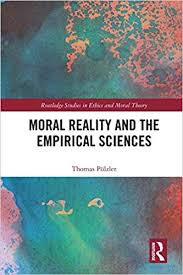Not a Good Fix: Constitutivism on Value Change and Disagreement
Abstract:
We examine whether Thomsonian constitutivism, a metaethical view that analyses value in terms of ‘goodness-fixing kinds,’ i.e. kinds that themselves set the standards for being a good instance of the respective kind, offers a satisfactory explanation of value change and disagreement. While value disagreement has long been considered an important explanandum, we introduce value change as a closely related but distinct phenomenon of metaethical interest. We argue that constitutivism fails to explain both phenomena because of its commitment to goodness-fixing kinds. Constitutivism explains away disagreement and at best explains the emergence of new values, not genuine change. Therefore, Thomsonian constitutivism is not a good fix for realist problems with explaining value disagreement, and value change.
Virtue Epistemology and Evolutionary Debunking of Morality
Abstract:
In this chapter, the author maintains that it is possible to formulate a plausible general epistemic principle that may serve as a premise in an evolutionary debunking argument (EDA) against moral beliefs by appealing to recent approaches to knowledge that center on the role of intellectual or epistemic virtues. Relying on the principle the author dubs “the achievement conception of undercutting defeat,” he argues that evolutionary explanations of morality can undermine the epistemic justification of all our moral beliefs if they show that our cognitive success in morality is not sufficiently creditable to the competent use of our cognitive abilities. By the author’s lights, not only does the antecedent of that conditional not obtain, but evolutionary explanations actually also strengthen the epistemic standing of our moral beliefs by helping us understand how it is that our cognitive abilities enable us to be cognitively successful in morality.
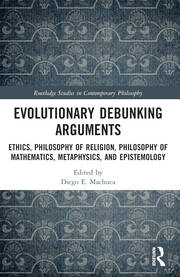
Conceptual Disruption and the Ethics of Technology
Abstract:
This chapter provides a theoretical lens on conceptual disruption. It offers a typology of conceptual disruption, discusses its relation to conceptual engineering, and sketches a programmatic view of the implications of conceptual disruption for the ethics of technology. We begin by distinguishing between three different kinds of conceptual disruptions: conceptual gaps, conceptual overlaps, and conceptual misalignments. Subsequently, we distinguish between different mechanisms of conceptual disruption, and two modes of conceptual change. We point out that disruptions may be induced by technology, but can also be triggered by intercultural exchanges. Conceptual disruptions frequently yield conceptual uncertainty and may call for conceptual and ethical inquiry. We argue that a useful approach to address conceptual disruptions is to engage in conceptual engineering. We outline what conceptual engineering involves and argue that discussions on conceptual disruption and conceptual engineering can benefit from closer integration. In closing, we discuss the relevance of studying conceptual disruption for technology ethics, and point to the promise of this line of research to innovate practical philosophy at large.
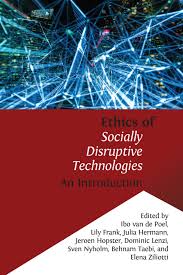
Online manipulation: Charting the field
Abstract:
This chapter provides an overview of the key debates and concepts relevant to online manipulation. First, it introduces and critically discusses three preliminary methodological questions concerning the method used to study manipulation (online), the normative charge of the concept, and the level and type of intentionality required to manipulate. Second, it critically discusses the most prominent philosophical approaches to the study of manipulation, distinguishing process-, outcome- and norm-based views of manipulation. Third, it introduces the notion of an “aggravating factor”, which is a factor that can make online manipulation more effective, its effects worse or morally wrong, or makes it harder for individuals to avoid or contest manipulative practices and technologies. Under this header, we will discuss personalization, opacity, flow, lack of user control, and an organization’s moral compass.
Manipulation, injustice, and technology
Abstract:
This article defends the view that manipulated behaviour is explained by an injustice. Injustices that explain manipulated behaviour need not involve agential features such as intentionality. Therefore, technology can manipulate us, even if technological artefacts like robots, intelligent software agents, or other ‘mere tools’ lack agential features such as intentionality. The chapter thus sketches a comprehensive account of manipulated behaviour related to but distinct from existing accounts of manipulative behaviour. It then builds on that account to defend the possibility that we are being manipulated by technology.
Pistols, pills, pork and ploughs: the structure of technomoral revolutions
Abstract:
The power of technology to transform religions, science, and political institutions has often been presented as nothing short of revolutionary. Does technology have a similarly transformative influence on societies’ morality? Scholars have not rigorously investigated the role of technology in moral revolutions, even though existing research on technomoral change suggests that this role may be considerable. In this paper, we explore what the role of technology in moral revolutions, understood as processes of radical group-level moral change, amounts to. We do so by investigating four historical episodes of radical moral change in which technology plays a noteworthy role. Our case-studies illustrate the plurality of mechanisms involved in technomoral revolutions, but also suggest general patterns of technomoral change, such as technology’s capacity to stabilize and destabilize moral systems, and to make morally salient phenomena visible or invisible. We find several leads to expand and refine conceptual tools for analysing moral change, specifically by crystallizing the notions of ‘technomoral niche construction’ and ‘moral payoff mechanisms’. Coming to terms with the role of technology in radical moral change, we argue, enriches our understanding of moral revolutions, and alerts us to the depths of which technology can change our societies in wanted and unwanted ways.

Recent Work on Moral Revolutions
Abstract:
In the last few decades, several philosophers have written on the topic of moral revolutions, distinguishing them from other kinds of society-level moral change. This article surveys recent accounts of moral revolutions in moral philosophy. Different authors use quite different criteria to pick out moral revolutions. Features treated as relevant include radicality, depth or fundamentality, pervasiveness, novelty and particular causes. We also characterize the factors that have been proposed to cause moral revolutions, including anomalies in existing moral codes, changing honour codes, art, economic conditions and individuals or groups. Finally, we discuss what accounts of moral revolutions have in common, how they differ and how moral revolutions are distinguished from other kinds of moral change, such as drift and reform.
Debunking, Epistemic Achievement, and Undercutting Defeat
Abstract:
Several anti-debunkers have argued that evolutionary explanations of our moral beliefs fail to meet a necessary condition on undermining defeat called modal security. They conclude that evolution, therefore, does not debunk our moral beliefs. This article shows that modal security is false if knowledge is virtuous achievement. New information can undermine a given belief without providing reason to doubt that that belief is sensitive or safe. This leads to a novel conception of undermining defeat, and it shows that successful debunking of moral realism is possible.
Pragmatism and Moral Objectivity
Abstract:
Most non-robust-realist metaethical theories, such as expressivism, constructivism, and non-robust forms of realism, claim to retain a sense of objectivity in ethics. A persistent issue for these theories is to identify an objective criterion for moral truth that meets their objectivist aspiration. Objectivist aspirations are often probed by confronting non-realists with abject normative positions, such as those of rational racists, which are licensed by the framework of the respective non-realist theory but nevertheless strike us a wrong. In such cases, non-realist theories face a dilemma. Either they allow that anything goes and thereby forgo their objectivist aspirations or they disallow abject normative positions. In the latter case, however, they have nothing to turn to but subjective criteria ultimately related to one’s personal outlook. This is unacceptably smug. I argue that pragmatism in the spirit of Charles S. Peirce partially solves this dilemma. True belief would withstand experience and argument were we to inquire as far as we fruitfully could on the matter. I elucidate this notion and argue that pragmatist construal of moral truth provides a substantive, objective criterion to determine the truth value of moral claims, without recourse to subjective criteria. This puts pragmatism ahead of rival non-realist theories.
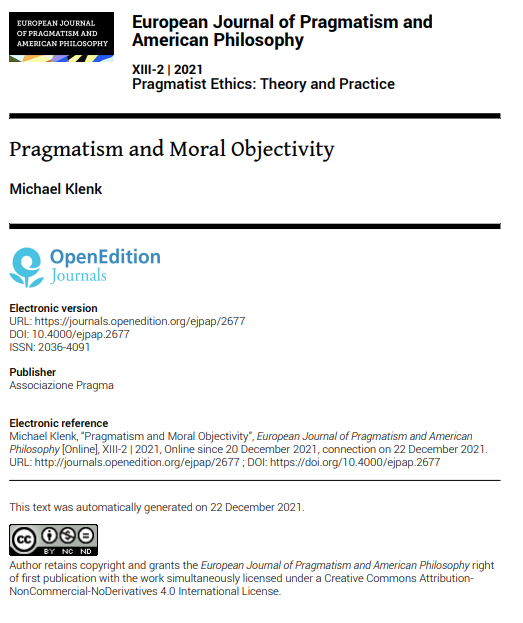
Moral Realism, Disagreement, and Conceptual Ethics
Abstract:
Moral disagreement is often thought to be of great metaethical significance for moral realists. I explore what remains of that significance when we look at moral disagreement through the lens of a combination of two influential and independently plausible hypotheses about moral language. The Morality-As-Cooperation (MAC) hypothesis says that our capacity for and use of moral language is an adaptation to increase mutualistic cooperation. The Concepts-As-Tools (CAT) hypothesis says that we often engage in disputes about language use and that many apparent moral disagreements are linguistic disagreements in disguise. The combined MAC-CAT view that I explore suggests that we frequently engage in linguistic disputes to find optimal means for mutualistic cooperation. I show that this perspective weakens sceptical claims based on moral disagreements, that is offers a novel way for moral realists to explain the apparent genuineness of moral disagreements without the need to accept theses borrowed from non-cognitivism.

Moral Luck and Unfair Blame (together with Martin Sand)
Abstract:
Moral luck occurs when factors beyond an agent’s control affect her blameworthiness. Several scholars deny the existence of moral luck by distinguishing judging blameworthy from blame-related practices. Luck does not affect an agent’s blameworthiness because morality is conceptually fair, but it can affect the appropriate degree of blame for that agent. While separatism resolves the paradox of moral luck, we aim to show it that it needs amendment, because it is unfair to treat two equally blameworthy people unequally. We argue that separatists should conceive fairness as a pro tanto reason for blame. By locating fairness as a ground for blame within a wider axiology of blame, separatism could resolve the challenge of blaming fairly. In such an axiology, reasonable and fair blame diverge.
Moral Judgment and Moral Progress: The Problem of Cognitive Control (together with Hanno Sauer)
Abstract:
We propose a fundamental challenge to the feasibility of moral progress: most extant theories of progress, we will argue, assume an unrealistic level of cognitive control people must have over their moral judgments for moral progress to occur. Moral progress depends at least in part on the possibility of individual people improving their moral cognition to eliminate the pernicious influence of various epistemically defective biases and other distorting factors. Since the degree of control people can exert over their moral cognition tends to be significantly overestimated, the prospects of moral progress face a formidable problem, the force of which has thus far been underappreciated. In the paper, we will provide both conceptual and empirical arguments for this thesis, and explain its most important implications.
The Influence of Situational Factors in Sacrificial Dilemmas on Utilitarian Moral Judgments
Abstract:
The standard way to test alternative descriptive theories of moral judgment is by asking subjects to evaluate (amongst others) sacrificial dilemmas, where acting classifies as a utilitarian moral judgment and not acting classifies as a deontological moral judgment. Previous research uncovered many situational factors that alter subject’s moral judgments without affecting which type of action utilitarianism or deontology would recommend. This literature review provides a systematic analysis of the experimental literature on the influence of situational factors on moral judgments in sacrificial dilemmas. It analyses 53 articles in detail and reports mean effect sizes, as well as operationalizations, for 36 situational factors that significantly influence moral judgment. Moreover, the review discusses how the impact of situational factors relates to a dual process theory of moral judgment. It supports the view that utilitarian judgments are driven by controlled cognitive processes and shows that the drivers of deontological judgments depend on valence.

(Online) manipulation: sometimes hidden, always careless
Abstract:
Ever-increasing numbers of human interactions with intelligent software agents, online and offline, and their increasing ability to influence humans have prompted a surge in attention toward the concept of (online) manipulation. Several scholars have argued that manipulative influence is always hidden. But manipulation is sometimes overt, and when this is acknowledged the distinction between manipulation and other forms of social influence becomes problematic. Therefore, we need a better conceptualisation of manipulation that allows it to be overt and yet clearly distinct from related concepts of social influence. I argue that manipulation is careless influence, show how this account helps to alleviate the shortcomings of the hidden influence view of manipulation, and derive implications for digital ethics.
COVID-19, uncertainty, and moral experiments (together with Ibo van de Poel)
Abstract:
Pandemics like COVID-19 confront us with decisions about life and death that come with great uncertainty, factual as well as moral. How should policy makers deal with such uncertainty? We suggest that rather than to deliberate until they have found the right course of action, they better do moral experiments that generate relevant experiences to enable more reliable moral evaluations and rational decisions.
Why Metaethics Needs Empirical Moral Psychology (together with Jeroen Hopster)
Abstract:
What is the significance of empirical moral psychology for metaethics?
In this article we take up Michael Ruse’s evolutionary debunking argument against
moral realism and reassess it in the context of the empirical state of the art. Ruse’s
argument depends on the phenomenological presumption that people generally expe-
rience morality as objective. We demonstrate how recent experimental findings chal-
lenge this widely-shared armchair presumption and conclude that Ruse’s argument
fails. We situate this finding in the recent debate about Carnapian explication and
argue that it illustrates the necessary role that empirical moral psychology plays in
explication preparation. Moral psychology sets boundaries for reasonable desiderata
in metaethics and, therefore, it is necessary for metaethics
Ethics of digital contact tracing and COVID-19: who is (not) free to go? (together with Hein Duijf)
Abstract:
Digital tracing technologies are heralded as an effective way of containing SARS-CoV-2 faster than it is spreading, thereby allowing the possibility of easing draconic measures of population-wide quarantine. But existing technological proposals risk addressing the wrong problem. The proper objective is not solely to maximise the ratio of people freed from quarantine but to also ensure that the composition of the freed group is fair. We identify several factors that pose a risk for fair group composition along with an analysis of general lessons for a philosophy of technology. Policymakers, epidemiologists, and developers can use these risk factors to benchmark proposal technologies, curb the pandemic, and keep public trust.
Prometheus' Legacy: Responsibility and Technology (together with Martin Sand)
Abstract:
A prominent view in contemporary philosophy of technology suggests that more technology implies more possibilities and, therefore, more responsibilities. Consequently, the question ‘What technology?’ is discussed primarily on the backdrop of assessing, assigning, and avoiding technology-borne culpability. The view is reminiscent of the Olympian gods’ vengeful and harsh reaction to Prometheus’ play with fire. However, the Olympian view leaves unexplained how technologies increase possibilities. Also, if Olympians are right, endorsing their view will at some point demand putting a halt to technological development, which is absurd. Hence, we defend an alternative perspective on the relationship between responsibility and technology: Our Promethean view recognises technology as the result of collective, forward-looking responsibility and not only as a cause thereof. Several examples illustrate that technologies are not always the right means to tackle human vulnerabilities. Together, these arguments prompt a change in focus from the question ‘What technology?’ to ‘Why technology?’

Charting Moral Psychology’s Significance for Bioethics: Routes to Bioethical Progress, its Limits, and Lessons from Moral Philosophy
Abstract:
Empirical moral psychology is sometimes dismissed as normatively insignificant because it plays no decisive role in settling ethical disputes. But that conclusion, even if it is valid for normative ethics, does not extend to bioethics. First, in contrast to normative ethics, bioethics can legitimately proceed from a presupposed moral framework. Within that framework, moral psychology can be shown to play four significant roles: it can improve bioethicists’ understanding of (1) the decision situation, (2) the origin and legitimacy of their moral concepts, (3) efficient options for implementing (legitimate) decisions, and (4) how to change and improve some parts of their moral framework. Second, metaethical considerations suggest that moral psychology may lead to the radical revision of entire moral frameworks and thus prompt the radical revision of entire moral frameworks in bioethics. However, I show that bioethics must either relinquish these radical implications of moral psychology and accept that there are limits to progress in bioethics based on moral psychology or establish an epistemic framework that guides radical revision.
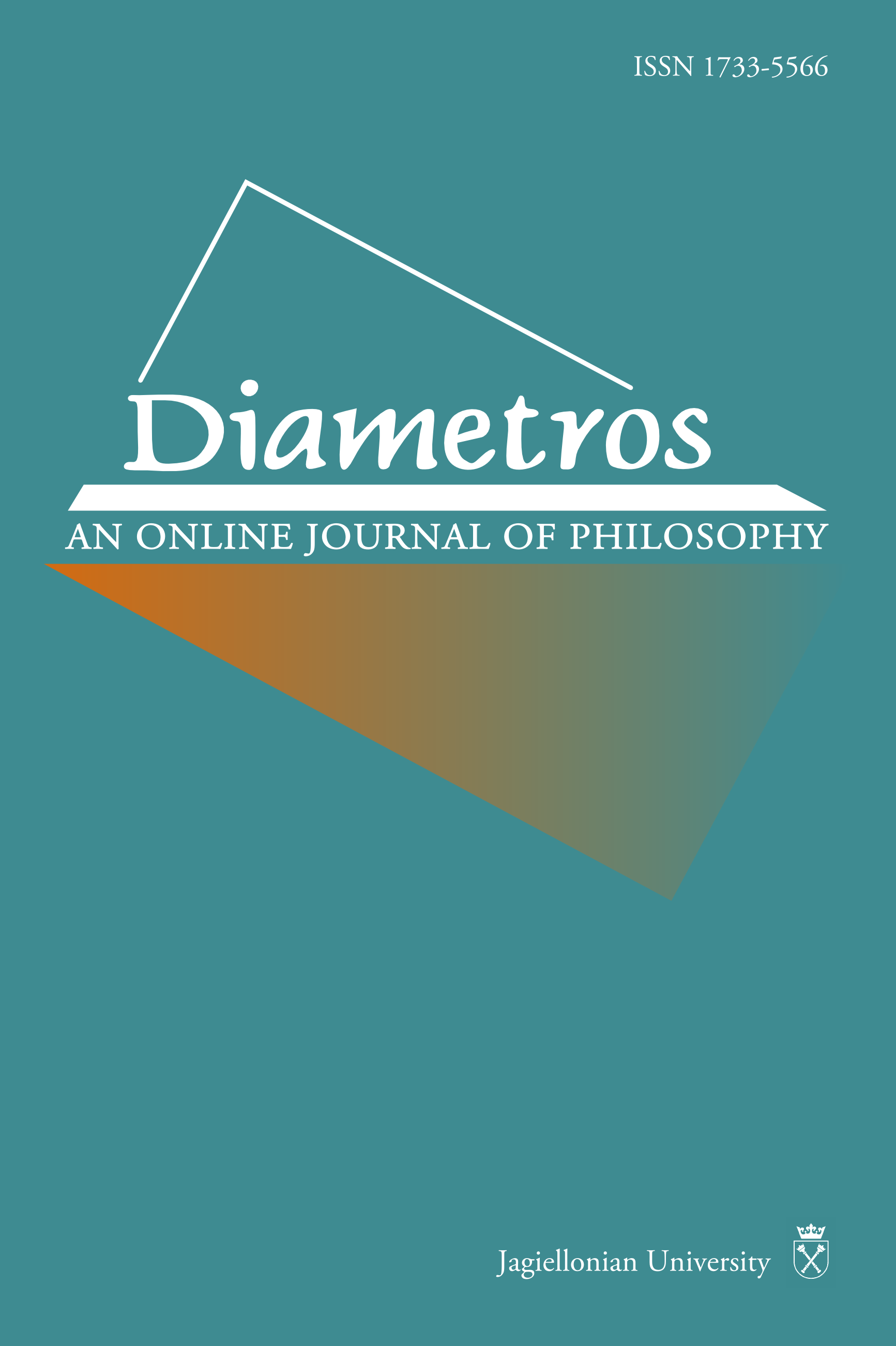
How Do Technological Artefacts Embody Moral Values?
Abstract:
According to some philosophers of technology, technology embodies moral values in virtue of its functional properties and the intentions of its designers. But this paper shows that such an account makes the values supposedly embedded in technology epistemically opaque and that it does not allow for values to change. Therefore, to overcome these shortcomings, the paper introduces the novel Affordance Account of Value Embedding as a superior alternative. Accordingly, artefacts bear affordances, that is, artefacts make certain actions likelier given the circumstances. Based on an interdisciplinary perspective that invokes recent moral anthropology, I conceptualize affordances as response-dependent properties. That is, they depend on intrinsic as well as extrinsic properties of the artefact. We have reason to value these properties. Therefore, artefacts embody values and are not value-neutral, which has practical implications for the design of new technologies.

Omnivores and Synthesisers: Academic Philosophers as Interdisciplinary Specialists
Abstract:
This chapter addresses the question of philosophy’s societal relevance in a systematic manner. I assess the implications of a seemingly innocuous idea about the nature of societal relevance in general and then show what follows from accepting that idea. In particular, I stipulate that an academic discipline is societally relevant insofar as it helps to resolve a society’s real problems. What makes such a view correct depends on meta-normative views. I show how one’s meta-normative view significantly determines the likelihood that disciplinary philosophy is of societal relevance. On normative non-naturalism, normative naturalism, and normative scepticism, the societal relevance of philosophy is in doubt. I then argue that philosophers should aim for two remedies. They should be what I call omnivores and 'synthesisers, aiming for empirically sound knowledge and interdisciplinary integration to achieve societal relevance independently of the correct meta-normative view.

Change in Moral View: Higher-Order Evidence and Moral Epistemology
Abstract:
How should we change our moral views in response to claims about the evolutionary origin of our moral beliefs or about widespread moral disagreement? This introductory chapter first explains the issue about how to change our moral views based on an easily accessible example. Then it shows how recent debates about the puzzle of higher-order evidence bears on recent debates in moral epistemology, notably the debates about evolutionary debunking arguments in metaethics, the epistemic significance of moral peer disagreement, moral testimony, and collective moral knowledge before it introduces the chapters of the book Higher-Order Evidence and Moral Epistemology.
Digital Well-Being and Manipulation Online
Abstract:
Social media use is soaring globally. Existing research of its ethical implications predominantly focuses on the relationships amongst human users online, and their effects. The nature of the software-to-human relationship and its impact on digital well-being, however, has not been sufficiently addressed yet. This paper aims to close the gap. I argue that some intelligent software agents, such as newsfeed curator algorithms in social media, manipulate human users because they do not intend their means of influence to reveal the user’s reasons. I support this claim by defending a novel account of manipulation and by showing that some intelligent software agents are manipulative in this sense. Apart from revealing a priori reason for thinking that some intelligent software agents are manipulative, the paper offers a framework for further empirical investigation of manipulation online.
Autonomy and Online Manipulation (together with Jeff Hancock)
Abstract:
More and more researchers argue that online technologies manipulate human users and, therefore, undermine their autonomy. We call this the MAL view on online technology because it argues from Manipulation to Autonomy-Loss. MAL enjoys public visibility and will shape the academic discussion to come. This view of online technology, however, fails conceptually. MAL presupposes that manipulation equals autonomy loss, and that autonomy is the absence of manipulation. That is mistaken. In short, an individual can be manipulated while being fully personally autonomous. Internet policy researchers should be aware of this point to avoid looking in the wrong place in future research on manipulative and harmful online technology. Showing that manipulative online technology leads to autonomy-loss requires empirical testing, or so we will argue.
Evolutionary Ethics
Abstract:
This chapter first introduces naturalistic approaches to ethics more generally and distinguishes methodological ethical naturalism (the focus of this chapter), from metaphysical ethical naturalism. The second part then discusses evolutionary ethics as a specific variant of methodological ethical naturalism. After introducing the concepts of evolutionary theory that are relevant for evolutionary ethics, I will sketch the history of evolutionary ethics, which offers an interesting lesson about why it became a controversial topic, and then focus on four central questions about ethics that can be approached from within the framework of evolutionary ethics.
Moral Philosophy and the 'Ethical Turn' in Anthropology
Abstract:
Moral philosophy continues to be enriched by an ongoing empirical turn, mainly through contributions from neuroscience, biology, and psychology. Thus far, cultural anthropology has largely been missing. A recent and rapidly growing ‘ethical turn’ within cultural anthropology now explicitly and systematically studies morality. This research report aims to introduce to an audience in moral philosophy several notable works within the ethical turn. It does so by critically discussing the ethical turn’s contributions to four topics: the definition of morality, the nature of moral change and progress, the truth of moral relativism, and attempts to debunk morality. The ethical turn uncovers a richer picture of moral phenomena on the intersubjective level, one akin to a virtue theoretic focus on moral character, with striking similarities of moral phenomena across cultures. Perennial debates are not settled but the ethical turn strengthens moral philosophy’s empirical turn and it rewards serious attention from philosophers.
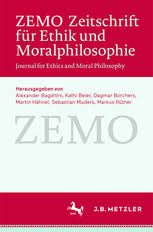
Objectivist conditions for defeat and evolutionary debunking arguments
Abstract:
I make a case for distinguishing clearly between subjective and objective accounts of undercutting defeat and for rejecting a hybrid view that takes both subjective and objective elements to be relevant for whether or not a belief is defeated. Moderate subjectivists claim that taking a belief to be defeated is sufficient for the belief to be defeated; subjectivist idealists add that if an idealised agent takes a belief to be defeated then the belief is defeated. Subjectivist idealism evades some of the objections levelled against moderate subjectivism but can be shown to yield inconsistent results in some cases. Both subjectivisms should be rejected. We should be objectivists regarding undercutting defeat. This requirement, however, is likely to be problematic for a popular interpretation of evolutionary debunking arguments in metaethics as it can be shown that existing objectivist accounts of defeat do not support such arguments. I end by discussing the constraints of developing such an account.

Evolution and Moral Disagreement
Abstract:
Several philosophers have recently argued that evolutionary considerations undermine the justification of all objectivist moral beliefs by implying a hypothetical disagreement: had our evolutionary history been different, our moral beliefs would conflict with the moral beliefs of our counterfactual selves. This paper aims at showing that evolutionary considerations do not imply epistemically relevant moral disagreement. In nearby scenarios, evolutionary considerations imply tremendous moral agreement. In remote scenarios, evolutionary considerations do not entail relevant disagreement with our epistemic peers, neither on a narrow nor on a broad conception of peerhood. In conclusion, evolutionary considerations do not reveal epistemically troubling kinds of disagreement. Anti-objectivists need to look elsewhere to fuel their sceptical argument.
Third factor explanations and disagreement in metaethics
Abstract:
Several moral objectivists try to explain the reliability of moral beliefs by appealing to a third factor, a substantive moral claim that explains, first, why we have the moral beliefs that we have and, second, why these beliefs are true. Folke Tersman has recently suggested that moral disagreement constrains the epistemic legitimacy of third-factor explanations. Apart from constraining third-factor explanations, Tersman’s challenge could support the view that the epistemic significance of debunking explanations depends on the epistemic significance of disagreement. I aim at showing that disagreement does not constrain the epistemic legitimacy of third-factor explanations in metaethics, and suggest a way forward in addressing the view that debunking depends on disagreement.
Can Moral Realists deflect defeat due to evolutionary explanations of morality?
Abstract:
I address Andrew Moon's recent discussion of the question whether third-factor accounts are valid responses to debunking arguments against moral realism. Moon argues that third-factor responses are valid under certain conditions but leaves open whether moral realists can use his interpretation of the third-factor response to defuse the evolutionary debunking challenge. I rebut Moon's claim and answer his question. Moon's third-factor reply is valid only if we accept externalism about epistemic defeaters. However, even if we do, I argue, the conditions Moon identifies for a valid third-factor response are not met in the case of moral realism.
Old Wine in New Bottles. Evolutionary Debunking Arguments and the Benacerraf-Field Challenge
Abstract:
I argue that evolutionary, causal explanations do not play an essential role Street's epistemological evolutionary debunking argument. Street’s argument depends on the Benacerraf-Field challenge, which is the challenge to explain the reliability of our moral beliefs about causally inert moral properties. The Benacerraf-Field challenge relies on metaphysically necessary facts about realist moral properties, rather than on contingent Darwinian facts about the origin of our moral beliefs. Attempting to include an essential causal empirical premise yet avoiding recourse to the Benacerraf-Field problem yields an argument that is either self-defeating or of limited scope. Ultimately, evolutionary, causal explanations of our moral beliefs and their consequences do not present the strongest case against robust moral realism.
Measuring Moral Development
Abstract:
In the aftermath of the financial crisis, heightened awareness of ethical issues sparked increased efforts within universities and businesses to educate people in moral matters. Sometimes, psychological tests are used to measure whether moral development occurred. If moral development is understood as a synonym of moral progress, then this might seem like a good sign: it seems as if we have a handle on making moral progress. Alas, moral development and moral progress are two very different things. And although we know a lot about moral development, what we know has little to do with moral progress. Let’s untangle both concepts.
Evolution and Ethics
Abstract:
We often follow what are considered basic moral rules: don’t steal, don’t lie, help others when we can. But why do we follow these rules, or any rules understood as “moral rules”? Does evolution explain why? If so, does evolution have implications for which rules we should follow, and whether we genuinely know this? This essay explores the relations between evolution and morality, including evolution’s potential implications for whether morality or ethics exists at all.
Survival of Defeat - Evolution, Moral Objectivity, and Undercutting
Abstract:
Evidence from biology and psychology suggests that our moral views depend on our evolutionary history. For example, if we humans would have evolved to live like hive bees, we would probably think very differently about moral questions such as whether we have a duty to care for our children. The findings from biology and psychology threaten to ‘debunk’ the justification of judgements about objective moral truths. Objective moral truths are always the same and they do not vary with our contingent evolutionary history, whereas our moral judgements do. It has been argued that we, therefore, cannot tell right from wrong. In my thesis, I investigate the epistemology behind the evolutionary debunking of morality. Evolutionary explanations of morality, I argue, do not imply that our moral judgements are false. This leaves the possibility that evolution undercuts our (alleged) evidence for our moral judgements. Our evolutionarily influenced moral judgements might turn out to be unreliable guides to the moral truth, just like sight is a lousy guide to the external world in bad lighting conditions. However, I show that as long as we have reason to initially trust our moral beliefs, evolution does not provide us with reason to give up our moral beliefs. If evolution undercuts our moral beliefs, evolutionary considerations must show that true moral judgements do not qualify as knowledge because moral judgements are not cognitive achievements but comparable to lucky guesses. The thesis thus answers how empirical investigations of morality might have justificatory implications and the findings are relevant for deciding whether new factual information can alter how we think about right and wrong.



